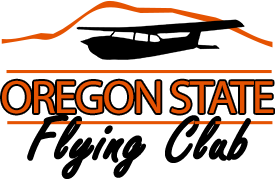Getting Your Private Pilot License
Getting your Pilot license can be an exciting and rewarding experience. Before you begin, however, there are several aspects that you should thoroughly consider to make the experience more fulfilling and manageable.
Can I really learn to fly?
Yes! Almost anyone can learn to fly. Contrary to what you may have seen in movies, civilian flight instructors will not yell at you, try to “wash you out”, or push you to see if you have “the right stuff”. They are dedicated to making a pilot out of you and you will find them friendly, helpful, and courteous.
How much time will it take?
The process of becoming a pilot involves considerable time. Each lesson will take around three hours, including ground instruction, flight preparation, the flight, and post flight review. Cross-country flights will take even longer. There is also a great deal of individual studying that you need to do in order to prepare for the written and oral exams. It is possible to get a private certificate in 4-6 weeks, but most people take longer.
What are the physical requirements?
You will need a Third Class Medical Certificate from an Aviation Medical Examiner, and there is one in Corvallis. You will be required to fill out a short FAA form summarizing your medical history, take that to the AME, and undergo a brief medical examination. There are very few medical conditions that will preclude you from becoming a pilot so the “medical” is not a concern for most people.
What will it cost?
There is no way around it, becoming a pilot costs money. Flight instruction, plane rental, and flight material such as books and headphones can all be costly and in some cases make attaining your pilot's license prohibitive. To reduce costs it is suggested that you frequently and consistently work toward your training by flying at least one to three times a week. If you are not financially ready to fly this often, it will likely cost you more in the long run because you will have to spend time and money relearning concepts. We suggested you begin flight training only when you are ready financially. This may mean postponing your training for a while, but will ultimately allow you to do the necessary training over a shorter and more concentrated period of time. While you are accumulating funds you can begin studying for the written exam. If you complete the exam first, it can make your flight lessons much easier since your instructor will not have to spend as much time teaching you the basic concepts and the FAA Regulations.
Below are the FAA minimums to become a private pilot. We have also listed more realistic costs and times based on Club prices. The OSFC takes pride in offering inexpensive, well-maintained aircraft and upholding a high standard of safety. If you have more questions about becoming a pilot (and we hope you do!), please contact one of our instructors or board members, and visit the frequently asked questions page. GO FOR IT! Flying is a fantastic, addictive experience and you are bound to love it.
| FAA Minimum Requirements | Realistic Average | ||
|---|---|---|---|
| Private Pilot | Private Pilot | ||
| 40 hrs Cessna 172 Skyhawk | $6200 | 55 hrs Cessna 172 Skyhawk | $8525 |
| 20 hrs dual flight instruction | 900 | 30 hrs dual flight instruction | 1350 |
| 20 hrs ground instruction | 900 | ||
| Books, Supplies, & Headset | $450 | Books, Supplies, & Headset | $450 |
| FAA Practical & Written Tests | $520 | FAA Practical & Written Tests | $520 |
| FAA Medical Exam | $80 | FAA Medical Exam | $80 |
| TOTAL | $8150 | TOTAL | $11825 |
